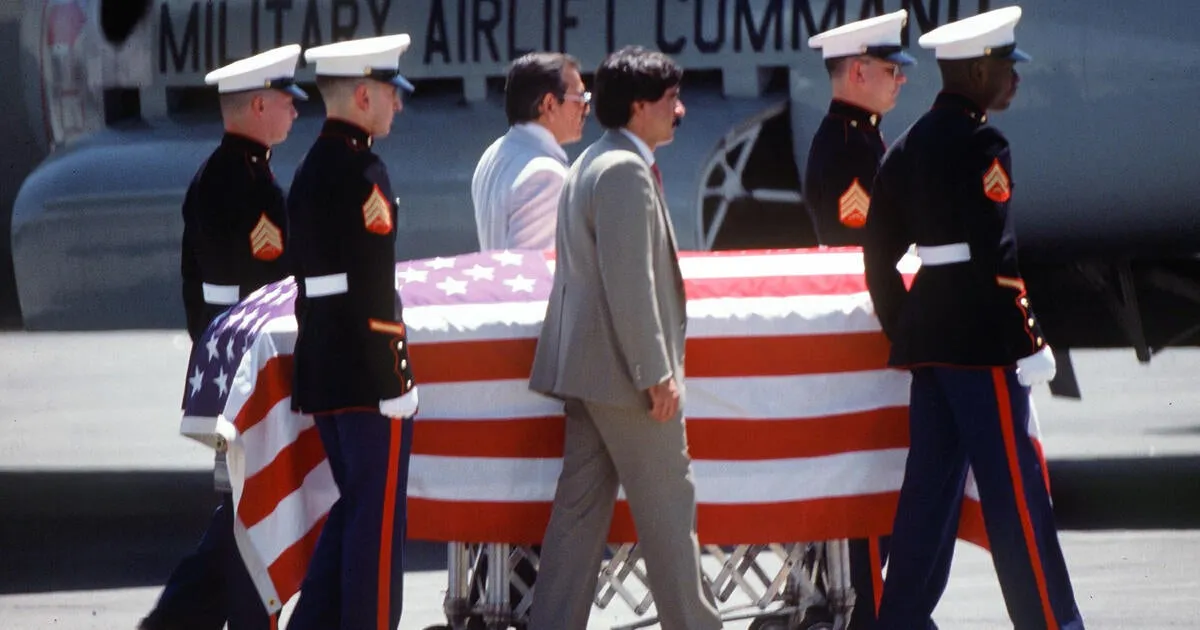
In a tragic chapter of law enforcement history, DEA agent Enrique 'Kiki' Camarena disappeared on February 7, 1985, shortly after playing a pivotal role in dismantling a billion-dollar marijuana operation in Mexico. On that fateful day, Camarena was en route to a luncheon with his wife, Mika, when he was ambushed by five armed men. According to the Drug Enforcement Administration (DEA), these assailants forcibly abducted him and sped away, marking the beginning of a heartbreaking saga.
At just 37 years old, Camarena was slated to return to the United States in a mere three weeks. However, the situation took a horrific turn when, about a month after his abduction, his body was discovered on a ranch approximately 60 miles from Guadalajara. Reports from the DEA confirmed that he had been brutally tortured prior to his death, underscoring the violence that surrounded drug trafficking in the region.
Nearly four decades later, the alleged mastermind behind Camarena's kidnapping and murder, drug lord Rafael Caro Quintero, is facing extradition to the U.S. Alongside Quintero, 28 other prisoners have been requested by the U.S. government, as confirmed by the Justice Department on Thursday evening. This development is profoundly significant for the men and women of the DEA, who believe that Quintero is directly responsible for the heinous crime against Camarena. DEA Acting Administrator Derek S. Maltz remarked, “Today sends a message to every cartel leader, every trafficker, every criminal poisoning our communities: You will be held accountable, no matter how long it takes or how far you run.”
Enrique Camarena was not only a dedicated agent but also a loving father of three sons. Living in Guadalajara with his family, he had been working as an undercover DEA agent for four years, targeting the biggest drug traffickers in Mexico. His son shared in a 2017 interview with CBS News that Camarena had spent 11 years with the DEA, following a distinguished career that included service in the U.S. Marine Corps, firefighting, police work, and as a deputy sheriff in Calexico, California, where he grew up.
Born in Mexicali, Mexico, Camarena moved to the U.S. at the age of nine and later married his high school sweetheart. In 1981, the family relocated to Mexico, where they continued to support Camarena's critical work in law enforcement. At the time of Camarena's abduction, Quintero was a prominent figure in the drug trade, known for supplying heroin, cocaine, and marijuana to the United States. Following a significant police raid on Quintero's marijuana plantation in 1984, it is believed that he ordered Camarena's kidnapping in retaliation.
Enrique Camarena's son, who shares his father's name, was only 11 years old when his father was abducted. He recounted how, just hours after the incident, agents flooded their home in a frantic search. “Within about five or six hours, there were a dozen to two dozen agents that arrived," he recalled, holding onto the hope that his father would return safely. “Well, your dad's Superman,” he thought, believing they would see him again. Tragically, that was not to be, as his family was soon whisked away to the U.S. for safety.
In the wake of Camarena's death, his memory has been honored through various initiatives. His hometown of Calexico started a movement by wearing red ribbons to commemorate his sacrifice, leading to the formation of the Camarena Club. Hundreds of members took a pledge to lead drug-free lives and, in 1985, presented a proclamation to then-First Lady Nancy Reagan, bringing national attention to the cause. This effort culminated in 1988 when Congress formally established Red Ribbon Week, aimed at promoting a drug-free lifestyle among families, educators, and communities.
Additionally, the Enrique S. Camarena Educational Foundation was founded, providing scholarships to high school seniors in his honor. In 2014, a memorial was erected in Los Angeles to further celebrate Camarena’s legacy. His son, now a judge in San Diego, reflects on the enduring lessons from his father, stating, “He taught us to treat everyone fairly.”